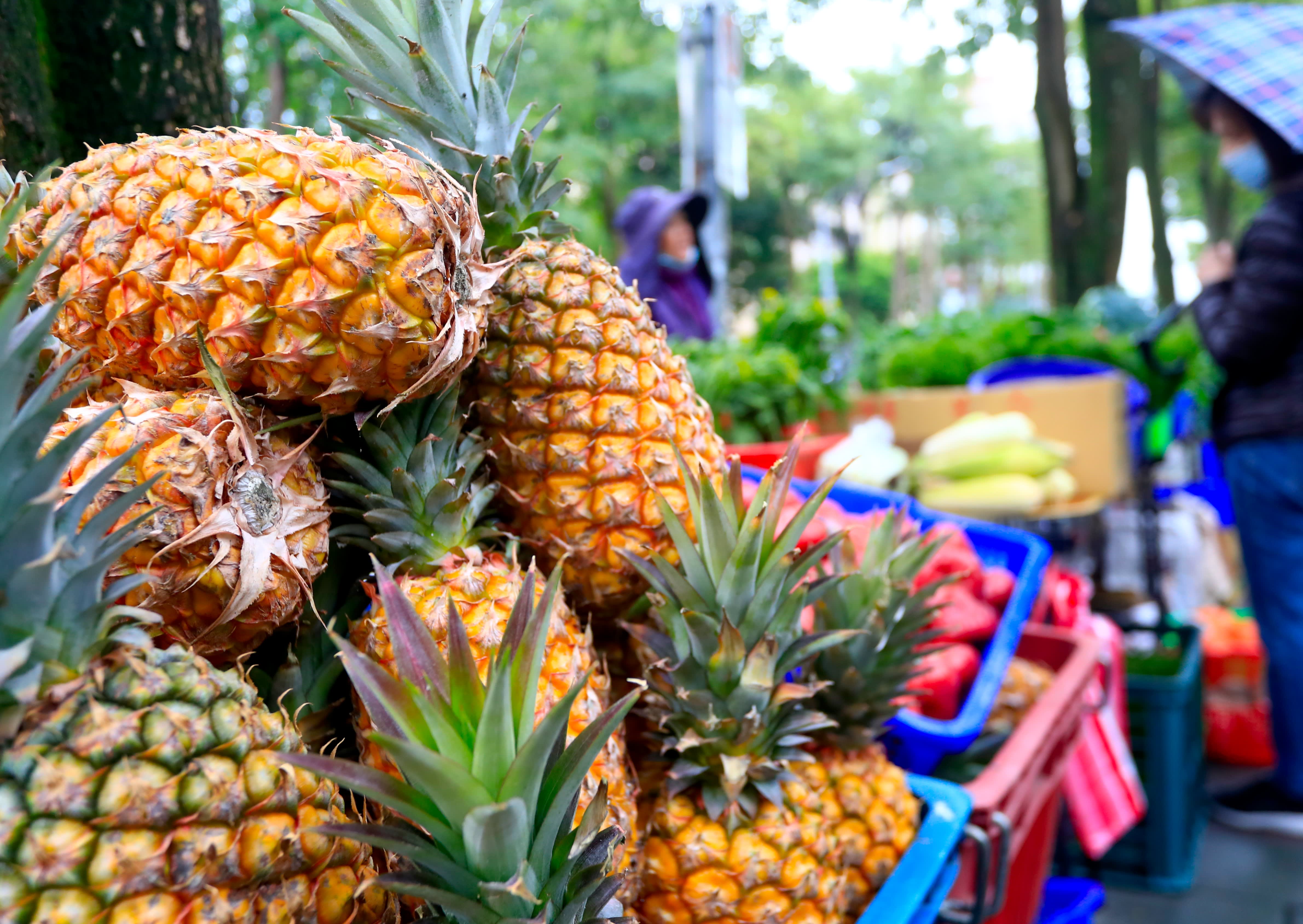Suddenly, China notified us of the pineapple pests and immediately banned imports of our products. We believe that it does not comply with international trade rules.
Wang Mei-Hua
Minister of Economy of Taiwan
Most of Taiwan’s pineapples are consumed domestically, according to Reuters. However, of those exported, 90% of them were sold to China last year.
“Suddenly, China notified us of the pineapple pests and immediately banned imports of our products. We believe it does not comply with international trade rules,” Wang told Emily Tan of CNBC on Wednesday.
“But we will try our best to reflect and discuss with China on this issue. In the meantime, we will try to diversify and sell our great products to other markets outside of China,” she said, according to a translation of her comments in Mandarin.
A pineapple street vendor seen on the street in Taipei. While China prohibits Taiwanese pineapple imports, Taiwanese leaders are asking people to buy more pineapple to help minimize the impact on farmers.
Ceng Shou Yi | NurPhoto | Getty Images
US and Canada support
US and Canadian diplomats have also shown support for Taiwan and its pineapples. The two countries do not maintain formal diplomatic relations with the island, but maintain close ties.
Canada’s commercial office in Taipei posted a photo on its Facebook account of its team posing with pineapple and pizza. The post included the hashtag #FreedomPineapples.
Separately, the American Institute of Taiwan used the hashtag #pineapplesolidarity and shared photos of the tropical fruit on offices and shelves. He also posted recipes that use pineapple.
Last week, a bill introduced in the House of Representatives required the United States to resume diplomatic ties with Taiwan, negotiate a free trade agreement (FTA) and support the island’s membership of international organizations.
Wang, Taiwan’s Minister of Economic Affairs, said Washington and Taipei have “long standing” economic and strategic relations. They also have strong cooperation in the semiconductor industry, she said.
“If, in the future, we could have an FTA, we would definitely welcome and seek it, as it would further strengthen our economic ties,” he added.
